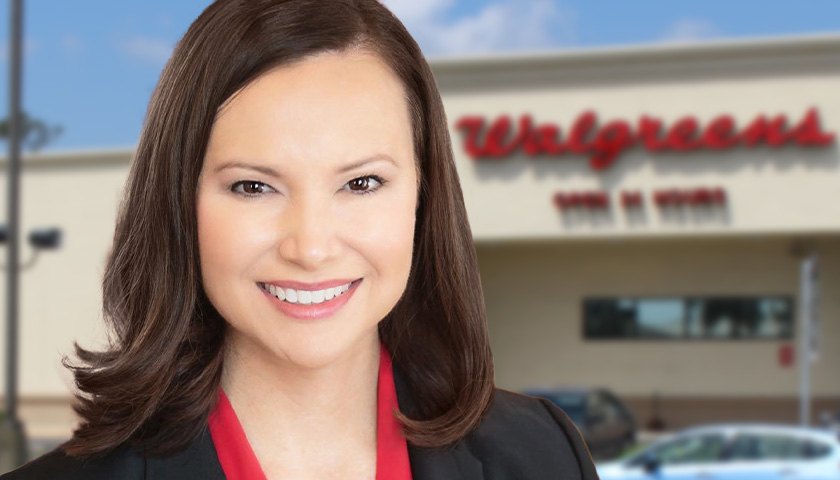by Bethany Blankley
Jurors in Florida heard opening arguments Monday in the civil case against pharmacy chain Walgreens over its marketing and distribution of opiods.
The lawsuit was filed by Florida Attorney General Ashley Moody.
Walgreens supplied billions of opioid pills to drug addicts and criminals and helped fuel an addiction epidemic in Florida, Jim Webster, an attorney with the AG’s office, argued.
“Walgreens was the last line of defense in preventing improper distribution of opioids,” Webster said, according to Reuters. “It was the entity that actually put the opioids in the hands of people addicted to opioids and the hands of criminals.”
Walgreens, which has denied the allegations, is the last defendant in a trial that’s gone before Pasco County Circuit Court Judge Kimberly Sharpe Byrd.
The state has so far recovered $3 billion from defendants in its opioid litigation, Moody’s office says.
“Following more than $3 billion in recoveries from defendants in Florida’s historic opioid litigation, one remains – Walgreens,” Moody said in a news release. “It’s time for Walgreens to face accountability for their part in fueling the opioid crisis, and my team is prepared to vigorously try our strong case against them.”
According to court filings, the state claims “a Walgreens drug distribution center sold 2.2 million tablets to a single Walgreens’ pharmacy in tiny Hudson, a roughly six-month supply for each of its 12,000 residents … In some cases, Walgreens increased orders as much as 600% in the space of just two years, including, for example, supplying a town of 3,000 with 285,800 orders of oxycodone in a one-month period.”
Webster told jurors that Florida has spent more than $14 billion to combat the opioid crisis and nearly 40,000 Floridians died from opioids from 1999 to 2020.
Additional facts and figures will be presented by the state this week, Moody’s office said.
Walgreens attorney Steven Derringer said its pharmacists filled prescriptions legally written by doctors, and blamed doctors for the opioid crisis.
“There are so many pills because doctors have written so many prescriptions for pain medicine,” Derringer said.
Derringer also blamed drug manufacturers “who lied to pharmacies about addiction risk,” and Food and Drug Administration officials who approved the sale of opioids.
The trial began after Florida recently announced it secured more than $870 million for opioid abatement from CVS Health Corporation, CVS Pharmacy, Inc., Teva Pharmaceuticals Industries Ltd. and Allergan PLC.
Under the agreement, CVS will pay $484 million to Florida; Teva will pay nearly $195 million; Allergan will pay more than $134 million to resolve claims relating to their roles in the opioid epidemic. Teva will also provide $84 million worth of its generic NARCAN nasal spray to the state.
Moody also announced that the Endo Health Solutions settlement is finalized, with every litigating city and county in Florida – more than 90 in total – participating.
“The opioid epidemic is wreaking havoc on Florida families,” she said. “The monies secured from CVS, Teva, Allergan and Endo will help further our efforts to remediate the harm and suffering of Floridians.”
Under the terms of the agreement, the money must be spent on opioid abatement, including prevention efforts, treatment or recovery services. The remainder of the funds will go toward paying fees and costs incurred by the state, cities and counties.
The settlement agreements follow Florida’s participation in a multi-billion-dollar nationwide settlement last July with McKesson Corp., Cardinal Health, Inc., AmerisourceBergen Corp., and Johnson & Johnson, Inc. Through that settlement, Florida will receive more than $1.6 billion, which must be used for remediation. Florida also finalized a settlement with McKinsey & Company for $40 million in February 2021.
– – –
Bethany Blankley is a contributor to The Center Square.
Photo “Ashley Moody” by Ashley Moody. Background Photo “Walgreens” by Michael Rivera. CC BY-SA 4.0.








